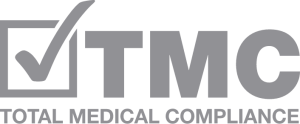In the intricate landscape of healthcare, compliance with regulations isn’t just a choice but a necessity. HIPAA stands as a beacon of privacy and security standards within the industry. Among its many components, one crucial element often overlooked yet central is sanction screening.
What is Sanction Screening?
Sanction screening involves the meticulous examination of individuals and entities involved in healthcare to ensure they’re not excluded from federal or state healthcare programs. These screenings search through various databases containing records of individuals or organizations barred from participating in Medicaid, Medicare, or other federal/state healthcare programs due to fraud, abuse, or other offenses.
Why is Sanction Screening Vital Under HIPAA?
The Process of Sanction Screening
Sanction screening involves regular checks against various databases to ensure that healthcare providers, employees, contractors, and vendors are not on any exclusion lists. Automated tools expedite this process, flagging potential matches for further manual review.
In a realm where patient well-being and data security are paramount, sanction screening emerges as a crucial safeguard. Compliance with HIPAA isn’t just about meeting regulatory requirements; it’s about fostering a culture of trust, integrity, and excellence in healthcare.
As the healthcare landscape evolves, the importance of sanction screening under HIPAA remains steadfast. Its role in preserving patient trust, financial stability, and regulatory adherence cannot be overstated. Embracing this practice isn’t just a choice but an imperative step towards fortifying the very foundation of the healthcare ecosystem.
Ensuring compliance with HIPAA through sanction screening isn’t just a checkbox exercise; it’s a commitment to maintaining the highest standards of patient care, confidentiality, and ethical conduct within the healthcare industry.

Total Medical Compliance
6124 Creft Circle
Indian Trail, NC 28079
Phone: (888) 862-6742
Fax: (866) 875-3809
©2023 Total Medical Compliance

Total Medical Compliance
6124 Creft Circle
Indian Trail, NC 28079
(888) 862-6742
Fax (866) 875-3809
©2022 Total Medical Compliance